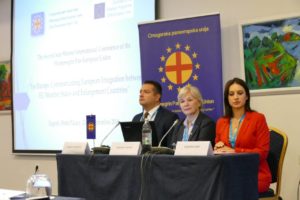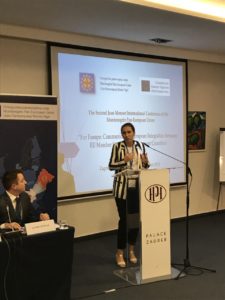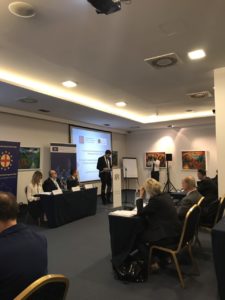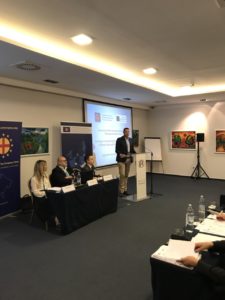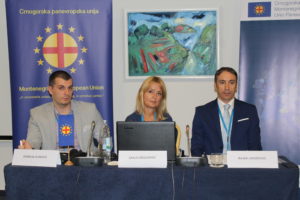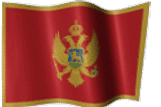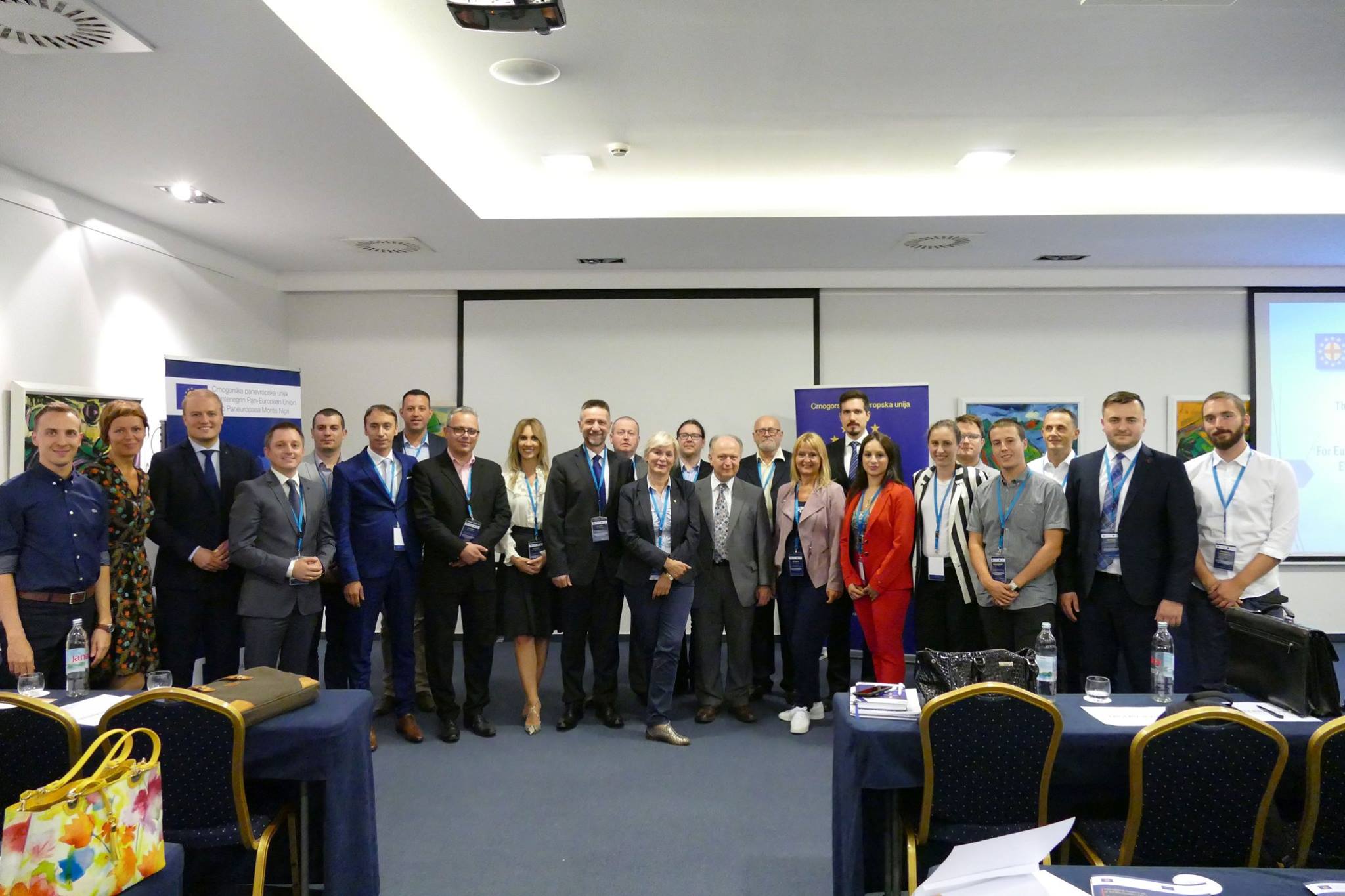Zagreb, 22.09.2018.
The second international Pan-European conference organized by the Montenegrin Pan-European Union on topic “For Europe: Communication of European Integration between EU Member States and Enlargement Countries” was organized on 21 and 22 September 2018 in Zagreb, at the Palace Hotel. The organization of the conference is supported by the European Commission through the Jean Monnet Action project “Communicating Europe in Pan-European Societies” 2017-2019, the CEPES project. Agenda of the Conference.
The participants of the conference were representatives of organizations, members of the International Pan-European Union (gathering both EU countries and Western Balkan countries), as well as representatives of the European Parliament, representatives of the Croatian Ministry of Foreign and European Affairs, the Montenegrin Embassy in Croatia, representatives of the Montenegrin Parliament, colleagues from the civil sector.
The International Pan-European Union is one of the oldest supranational movements in Europe that inherits the ideas of its founders, especially Count Richard Coudenhove-Kalergi, and its goals are in line with the unified Europe as a community of the rule of law, peace, freedom and common, European values.
Ambassador of Montenegro to the Republic of Croatia, Boro Vučinić, welcoming the participants of the conference stressed that dedication to the European idea joining the Pan-European societies of South Eastern European countries with the EU countries is also found in the underlying strategic foreign policy determinants and goals of Montenegro. The noble European idea states that: The peoples of Europe share a common history and heritage, and therefore their vision of European unity is not only an abstraction of a common political and economic future but also a return to the natural and cultural circle that historically belong to all European peoples, and all its neighbors in the region.

Matija Očuršćak, Head of Sector for South East Europe and Enlargement at the Ministry of Foreign and European Affairs of the Republic of Croatia, pointed out at the Ministry of Foreign Affairs and European Affairs of the Republic of Croatia, stressed that the Republic of Croatia welcomes the renewed interest of Europe for the region of South East Europe. Following the provisions of the Foreign Partnership Contract between the Republic of Croatia and Montenegro, Croatia has actively supported the path of Montenegro to NATO membership. Therefore, Mr. Očuršćak confirmed the support of the Republic of Croatia towards Montenegro in relation to its path towards the EU. He stressed that it is essential for all Western Balkan countries to have a clear and firm perspective on EU accession, and that Croatia supports the regatta principle and that in the coming period it will be a strong partner to the Balkan countries in their reforms within the European integration process. He also announced the important role of Croatia for enlargement policy 2020 when Croatia will take over the Presidency of the EU Council of Ministers

The President of the International Pan-European Union, Mr. Alain Terrenoire, also addressed the conference, who stressed that countries such as Montenegro should offer a certain type of pre-accession form in order to actively engage in the process of creating a common foreign and security policy for the EU. He stressed that in such times of crisis it is necessary to involve all European governments in order not to activate old rivalries. He reiterated that the term Panevropa encompasses all of Europe, not its fragments, and that it should follow the EU as well. It is necessary, as the President of the International Pan- European Union said, to rebuild the EU project so that Europeans can finally live together in security and progress.

Academician Mislav Ježić, the President of the Croatian Pan-European Union, said that the very good cooperation between the Pan-European Union and the Montenegrin Pan-European Union, and praised that the CPEU is made up of young prospects who truly believe in the values the Pan-European community nurtures. He reminded that Croatia and Montenegro have been building good relations for a long time, reminded them of the age of the Kenyans and the Kingdom of Montenegro, and highlighted the work of Croatian lawyer Valtazar Bogišić, and pointed out the deep roots of these relations. He concluded that he supported the Western Balkans’ integration into the EU as soon as the European Union must be complete with all the European states inside.

Gordana Đurović, the President of the Montenegrin Pan-European Union expressed particular satisfaction with the fact that the second MPEU conference is taking place in the Republic of Croatia that contributes significantly to strengthening the idea of European unification and promotion of European values through its activities, moreover it is even more impressive that the representatives of other important IPEU members are present here today, Pan-European organizations from France, Austria, Slovenia, Bosnia and Herzegovina and Montenegro. In this way, the conference achieves its basic objectives, namely to better communicate on a common European future, affirmation of a major agenda from the Summit in Sofia, to Europe that protects, empowers and defends, for a stronger presence and attention of the EU towards the Western Balkans region as well as a more stable region, integrated into the European family.
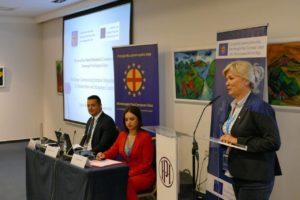
At the first panel devoted to the debate on European values and Europeanization of South East Europe, a representative of the European Parliament, Mr. Tonino Picula highlighted that it is very important today to communicate the European integration process to candidate countries or potential candidates for EU accession, but perhaps more importantly, as he has said, how to communicate a European project within the EU. It is very important that two-thirds of the European Parliament’s deputies continue to strongly support the EU’s enlargement policy. He also recalled the ongoing disputes in the Western Balkans area and noted the presence of a high optimism among Europeans and EU institutions for resolving the issues of the name of the former Yugoslav Republic of Macedonia, while on the other hand, the dispute between Serbia and Kosovo * considers that a possible solution the exchange of territories would only open Pandora’s box of new problems in the Balkans.

Adrijan Vuksanović, a member of the Parliament of Montenegro, the Chair of the Committee for European Integration and the Vice-President of the CPEU, stated that Montenegro deserves membership in the European Union because it is well under way in the negotiations, but it should also be noted that Montenegro has inherited the EU values at those times when it was not easy to prove and that Montenegro is due to its specificity in such a small territory there is ethnic, religious and every other harmony, one can regard the EU as a small one. Furthermore, he pointed out that Montenegro was always part of the solution and never the problem, and for all that, in relation to the recent crisis in the country ahead of the 2016 parliamentary elections, the consequences of which can still be seen today, it is very important that there is explicit support for European Union.
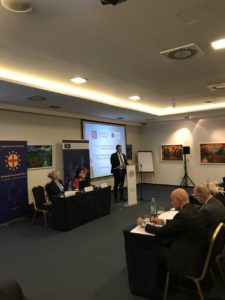
Pavo BARIŠIĆ, the General Secretary of the International Pan-European Union commended the Montenegrin Pan-European Union on a timely questioning of how to communicate the EU’s integration with regard to Montenegro’s reach in the EU membership negotiations, in order to combat the ever-increasing “Fake News”. He emphasized that European values are the foundation of the EU and that, in order to overcome all the crises that shake Europe, it is very important not to impose these values with tolerance, but to take all the diversity into account, and that will certainly lead to greater unity in the EU. He agreed with the thought of EC President Junker, who recalled a successful series of EU enlargements that had succeeded in reconciling Europe’s history and geography, and that this process should be completed.
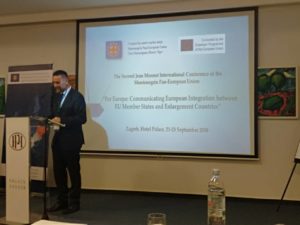
Franjo TOPIĆ, member of the IPEU Presidency said that the EU’s greatest achievement and maintenance of peace was never better lived in Europe, and that the cause of dissatisfaction with the situation in the EU is the state of consciousness of people and not such a good mechanism for communicating EU integration and values. Therefore, it confirmed the importance of such events for influencing people’s awareness of these processes.

Rainhard KLOUCEK, Secretary General of Austrian PEU Secretary General of the PEU Austria has confirmed that the enlargement policy is one of the most successful European Union policies and that maintaining stability is always less expensive than creating instability. He added that the Western Balkanization of Europe is very important, but that the Europeanization of the European Union again is much more pressing.

In the third panel, the discussion was focused on the regional challenges of the integration process of WB6, while the fourth panel was devoted to the views of Youth Pan-Europeans on the accession agenda of 2025.
The conference continued with the panel on regional challenges facing the European Union and speakers were as follows:
Bernd POSSELT, President of the PEU of Germany, who said that without the common European sovereignty on the continent there will be no sovereignty in general, and if the states of Europe would like to have any influence on the events in the world, it is necessary to be united. He further stressed that the role of Pan-European Movements lies in bringing the spirit of European communities, regions and cities into EU institutions and to achieve this, it is necessary to make quality communication.
Mislav JEŽIĆ, President of PEU Croatia once again referred to the chronology of the rich and good relations between the Republic of Croatia and Montenegro and said that the Croatian minority in Montenegro and the Montenegrin minority in Croatia are the best bond between the two peoples and states. He announced that the next summits are important for Western Balkans, in Sibiu 2019 and Zagreb 2020, because they are going to deal with the issue of enlargement.
Dejan HRIBAR, Secretary General of PEU Slovenia, said that citizens of Southeast Europe see themselves within the EU; EU citizens see Southeastern Europe in the Union and that he does not see a problem why these countries could not be part of the EU soon. He stressed the importance of quality communication of the EU process so that there would be no further delay in the specific process, which would jeopardize the support of EU membership candidates in the EU.
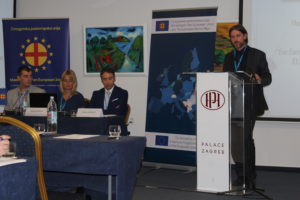
Haris CUTAHIJA, Acting President of the PEU of Bosnia and Herzegovina, pointed out that Europe has emerged as a long-term solution to the conflict, which is the formula that the Balkans need to apply. Mr. Cutahija said that this is one of the few moments when we all in Southeast Europe are on the same strain, turning to the common European future and that momentum should be used.
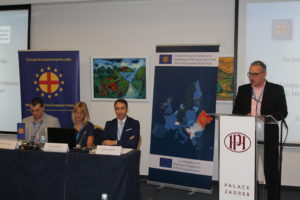
Gordana ĐUROVIĆ, President of the PEU of Montenegro, presented the main challenges and the next steps of Montenegro and the countries of the region on the road to the EU with special emphasis on the conditions for successfully concluding the negotiations for Montenegro.
The third panel was devoted to the dialogue of the Youth organizations within the Pan-European Unions regarding the perspective of enlargement 2025, and the Youth will be represented by representatives of Croatia, Montenegro, Bosnia and Herzegovina and Austria:
Djordjije BRAJOVIC, Secretary General of the Montenegrin Pan-European Union, said that the European Union has no alternative to the countries of South East Europe, and the fact that the enlargement policy is one of the best EU policies goes in favor of it.
Pavao NUJIĆ, the president of the Youth Croatian Paneuropa Union, said that we must start thinking in the long run, but keeping in mind the key principle of European unification – solidarity.
Dario PLAVČIĆ, President of the Youth of Pan-European Union of Bosnia and Herzegovina, pointed out that Paneuropa has always been an avant-garde policy and added that in the process of joining the EU, young people have to have a particularly active role, bearing in mind that they make up 25% of Europe’s population.
Stefan HOBÖCK, a representative of the Youth of PEU Austria, said that the Western Balkans countries need to get into the EU as soon as possible, from four key aspects: security, economic, reform, and the influence of global powers.
Milica Muhadinovic, secretary of the Montenegrin Pan-European Union, highlighted the role of youth in Montenegrin pan-European activities and explained key activities and events in the recent period of youth organization.
At the conference, the Declaration was adopted, with messages for a stronger Europe through better communication, for the full implementation of the Priority Agenda from the Summit in Sofia, for Europe that protects, empowers and defends, for enhanced EU engagement in the region and for more stable and integrated region with the prospect of membership in the Union.
